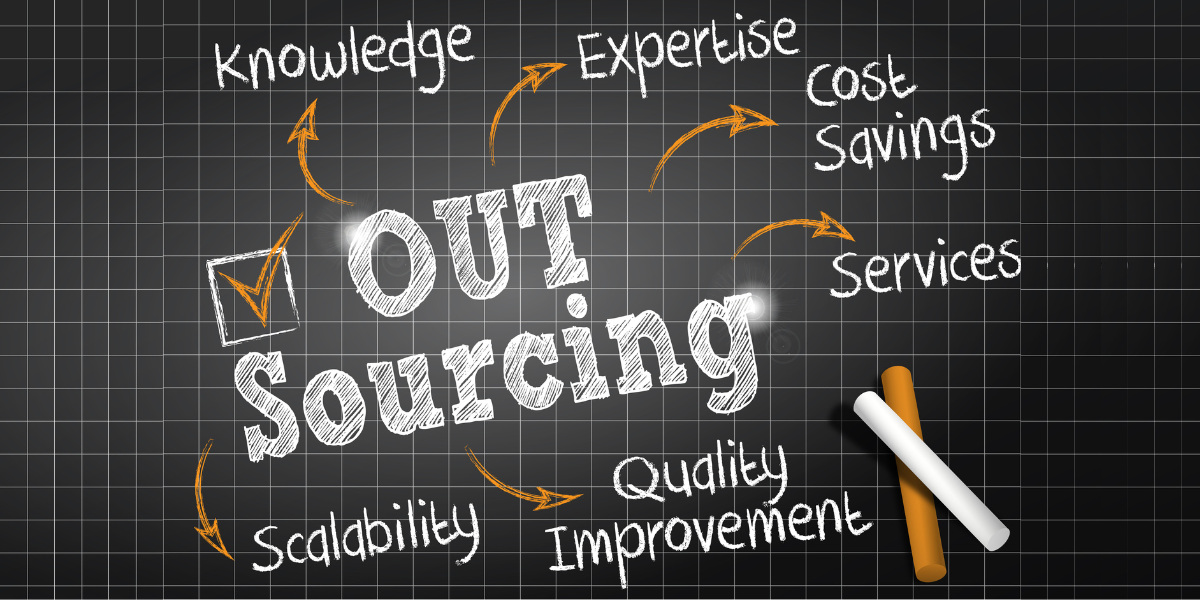Boosting Productivity in 2025: Why Outsourcing Is the Secret Ingredient Jan 20, 2025

In today’s hyper-competitive business landscape, productivity is the cornerstone of success for small and medium-sized enterprises (SMEs). The ability to efficiently manage resources, streamline operations, and focus on strategic objectives often determines whether a business thrives or struggles. Yet, many SMEs grapple with the challenge of juggling core activities alongside time-consuming, repetitive tasks. The solution? Outsourcing.
Outsourcing is no longer just a cost-cutting measure; it is a strategic tool that empowers businesses to elevate productivity and focus on growth. By delegating non-core tasks to specialized providers, SMEs can unlock their full potential. Here’s why outsourcing could be the secret ingredient to boosting productivity in 2025.
1. Focus on Strategic Objectives
One of the primary advantages of outsourcing is the freedom it provides. When businesses delegate non-core tasks, internal teams have more bandwidth to concentrate on strategic objectives. For SMEs, this means directing energy and resources toward growth-driven initiatives like product development, market expansion, and customer engagement.
Example:
Imagine a budding tech startup. Instead of spending hours managing payroll or IT support, the leadership can outsource these tasks and focus on refining their product and acquiring new clients. According to a study by Deloitte, 59% of companies outsource to reduce costs, but 57% do so to enable focus on core business functions. (Deloitte’s 2023 Global Outsourcing Survey)
Tip:
Identify the non-core activities in your business that consume significant time but offer little direct value to your growth objectives. Tasks like accounting, HR, and administrative support are often ripe for outsourcing.
2. Streamline Operations
Repetitive tasks can bog down even the most efficient teams. Outsourcing such activities ensures they are handled consistently and effectively while freeing internal teams for higher-value work. SMEs can leverage outsourcing for:
- Data entry and database management
- IT help desk services
- Payroll processing
- Book Keeping
Example:
An SME might struggle to get invoices out to clients for work done. This impacts cash flow. Outsourcing book keeping ensures invoices for work done are sent out on time and clients pay on time maintaining cash flows.
Interesting Fact:
Did you know that businesses spend an average of 120 hours annually on payroll tasks alone? Outsourcing payroll can reclaim that time, translating into tangible productivity gains. (Small Business Trends)
Tip:
Start small. Outsource a single repetitive task and measure its impact on your team’s efficiency before scaling up.
3. Leverage Expert Insights
Outsourcing partners bring a wealth of specialized knowledge and tools to the table. SMEs that collaborate with experienced providers can benefit from improved processes, access to cutting-edge technology, and expert insights that enhance overall productivity.
Example:
Consider an SME looking to enhance its digital marketing efforts. Instead of hiring and training an in-house team, they partner with a marketing agency specializing in SEO and SEM. The result? Faster campaign rollouts and measurable improvements in web traffic and conversions.
According to a Clutch survey, 37% of SMEs outsource their digital marketing tasks, citing access to better talent and tools as key reasons. (Clutch)
Interesting Fact:
Outsourcing IT services can reduce operational costs by 30% to 40%, while simultaneously improving system uptime and security. (IBM IT Services Report)
Tip:
Choose outsourcing partners with proven expertise in your industry. Request case studies or client testimonials to ensure they’re a good fit for your needs.
Examples of Tasks SMEs Can Outsource
Outsourcing isn’t limited to IT or payroll; SMEs can delegate a variety of tasks, including:
- Accounting and Bookkeeping: Ensuring compliance and accurate financial reporting without in-house expertise.
- Content Creation: Outsource blog writing, video editing, and graphic design to specialists.
- Virtual Assistance: Delegate email management, scheduling, and other administrative tasks.
- HR Functions: Employee records maintenance, payroll processing and related.
- Legal Process Outsourcing: for law firms, end to end legal process outsourcing across a range of non-fee earning and fee earning tasks.
Maximizing Productivity Gains from Outsourcing
To reap the full benefits of outsourcing, SMEs must approach it strategically. Here are some tips to maximize productivity gains:
1. Define Clear Objectives:
Before outsourcing, identify the specific outcomes you want to achieve. Whether it’s faster turnaround times, cost savings, or improved quality, clear goals ensure alignment with your outsourcing partner.
2. Build a Strong Partnership:
Effective outsourcing is built on trust and collaboration. Treat your outsourcing partner as an extension of your team. Regular communication and performance reviews can help maintain alignment.
3. Monitor Performance Metrics:
Track key performance indicators (KPIs) to measure the impact of outsourcing on your business. Metrics such as turnaround time, error rates, and customer satisfaction can provide valuable insights.
4. Embrace Technology:
Leverage project management and communication tools like Slack, Trello, or Asana to stay connected with your outsourcing partner. These tools ensure seamless collaboration and transparency.
Overcoming Common Outsourcing Myths
Despite its advantages, outsourcing is often misunderstood. Let’s debunk some common myths:
Myth 1: Outsourcing is Only for Large Corporations
Reality: SMEs account for a significant portion of the outsourcing market. Flexible pricing models make it accessible even to small businesses.
Myth 2: Outsourcing Leads to Loss of Control
Reality: With the right partner and clear communication channels, SMEs can maintain full control over outsourced tasks.
Myth 3: Outsourcing is Only About Cost Savings
Reality: While cost savings are a benefit, the true value lies in enhanced productivity, access to expertise, and improved focus on core activities.
In 2025, outsourcing is not just a tactical choice; it’s a strategic imperative for SMEs aiming to boost productivity and drive growth. By freeing internal resources, streamlining operations, and leveraging expert insights, businesses can position themselves for long-term success. As SMEs navigate the challenges and opportunities of the modern business world, outsourcing offers a powerful way to stay agile and competitive. Whether you’re an entrepreneur launching your first venture or a seasoned business owner looking to scale, outsourcing could be the secret ingredient that takes your productivity to the next level.
